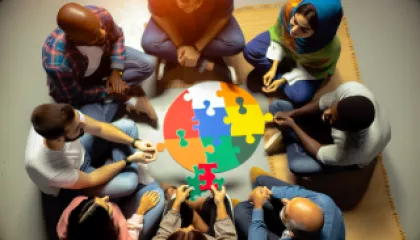10 Intuitive Growth Workshops to Unlock Your Sixth Sense
1 anno fa
Sviluppare l'Intuizione
Caregiver Support Services for Aging Parents: A Research Summary
1 anno fa
Genitori Anziani
Discovering Your Optimal Learning Style: A Step-by-Step Guide
1 anno fa
Stili di Apprendimento
Emotional Healing Through Physical Touch: An Expert's Perspective
1 anno fa
Benefici del Contatto Fisico
How to Heal From a Broken Heart in 7 Steps
1 anno fa
Gestire una Rottura
Building Trust in Parent-Child Relationships
1 anno fa
Relazione Genitore-Figlio
What are the benefits of caregiver support services for aging parents?
1 anno fa
Genitori Anziani
Ultimate Guide to Relaxation Techniques for Caregivers
1 anno fa
Stress dei Caregiver
Effective Coping Strategies for Stress Reduction: A Research Summary
1 anno fa
Strategie di Adattamento
Effective Ways to Cope with Loneliness: A Step-by-Step Guide
1 anno fa
Solitudine
5 Life Lessons from Movies About Aging Parents
1 anno fa
Genitori Anziani
5 Inspiring Books and Movies for Understanding Elderly Mental Care
1 anno fa
Cura Mentale per Anziani
Exploring Senior Mental Health Guidance: A Research Summary
1 anno fa
Cura Mentale per Anziani
Building a Strong Parent-Child Relationship: The Ultimate Guide
1 anno fa
Relazione Genitore-Figlio
Step-by-Step Guide to Debunking Common Mental Health Myths
1 anno fa
Miti sulla Salute Mentale Sfatare















